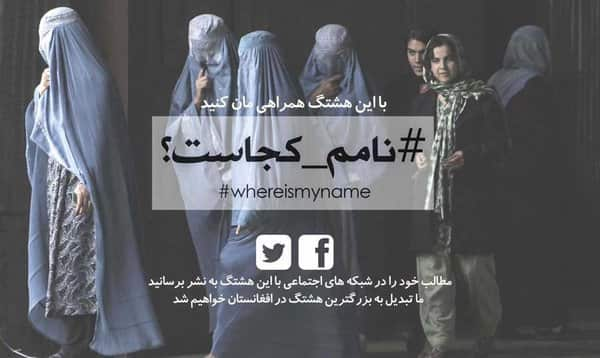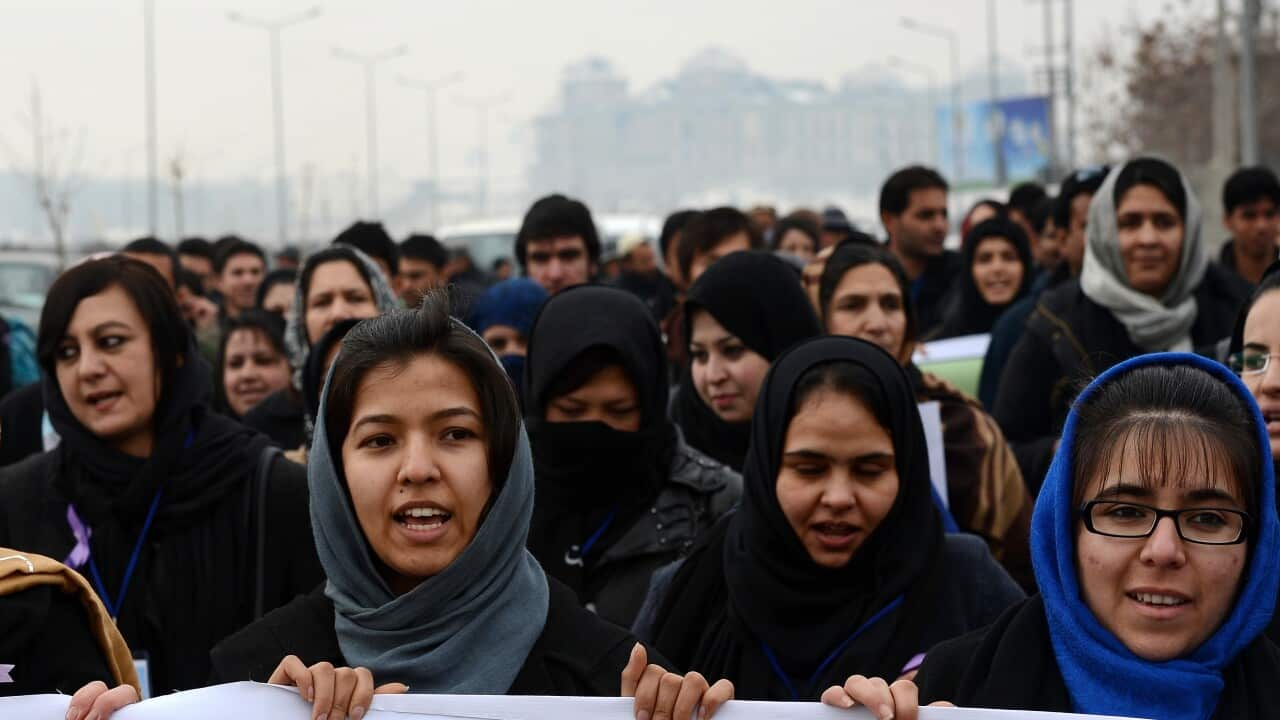In Afghanistan, women's names are not spoken in public.
In the patriarchal Afghan society, a woman's name should not be revealed, even on an invitation to her wedding or her children's birth certificate, Reuters reports.
Using a woman's name is frowned upon or even considered an insult.
Instead, the custom is to refer to women as the mother, daughter or sister of the eldest male in their family. Or using terms such as 'Mother of Children', 'My Weak One' or just 'Aunt'.
Now, women's rights activists are hoping to change all that, and have launched a social media campaign with the hashtag #WhereIsMyName.
"Our society is full of injustice for women, basically everything is taboo for women," activist Bahar Sohaili tells the Thomson Reuters Foundation.
"With this campaign we aim to change many things for women and social media has opened a new window to Afghanistan's young generation."
The campaign has received support from thousands of Afghani authors, journalists, members of parliament and musicians on Facebook and Twitter, including popular singer Farhad Darya, who posted a photo of himself and his wife with the caption "Farhad and Sultana Darya".
“On many occasions in front of a crowd that doesn’t have family relations to me, I have noticed how the foreheads of men sour by what they see as my cowardice in mentioning the name of my mother or my wife,” Darya wrote on Facebook.
“They stare at me in such a way as if I am the leader of all of the world’s cowards and I know nothing of ‘Afghan honor and traditions.’”

The practice of not using women's names comes from Afghan custom, rather than the dominant religion Islam.
Afghan sociologist Hassan Rizayee tells the New York Times the custom comes from tribal ways of life.
“According to tribal logic, the important thing is the ownership of a woman’s body,” Rizayee said.
“The body of a woman belongs to a man, and other people should not even use her body indirectly, such as looking at her. Based on this logic, the body, face and name of the woman belong to the man.
“This is a traditional and cultural issue. It needs a long-term cultural struggle and fight. By weakening tribal cultures, and awareness through the media, this type of thinking about woman could be changed."
The campaign started with several social media posts out of Herat Province, and it is now being discussed on television and radio talk shows and in newspaper articles.
On social media the hashtag has been used over 1,000 times in recent days.
Talaya from Herat told BBC Persian: "Because a woman's identity is not even mentioned in their funeral...they remain unidentified even after death.
"In this fight, not only women but men who also should stand beside the suffering women of our country and make efforts for regaining their lost rights. They have to try day and night."
But some are questioning just how effective the campaign really is.

